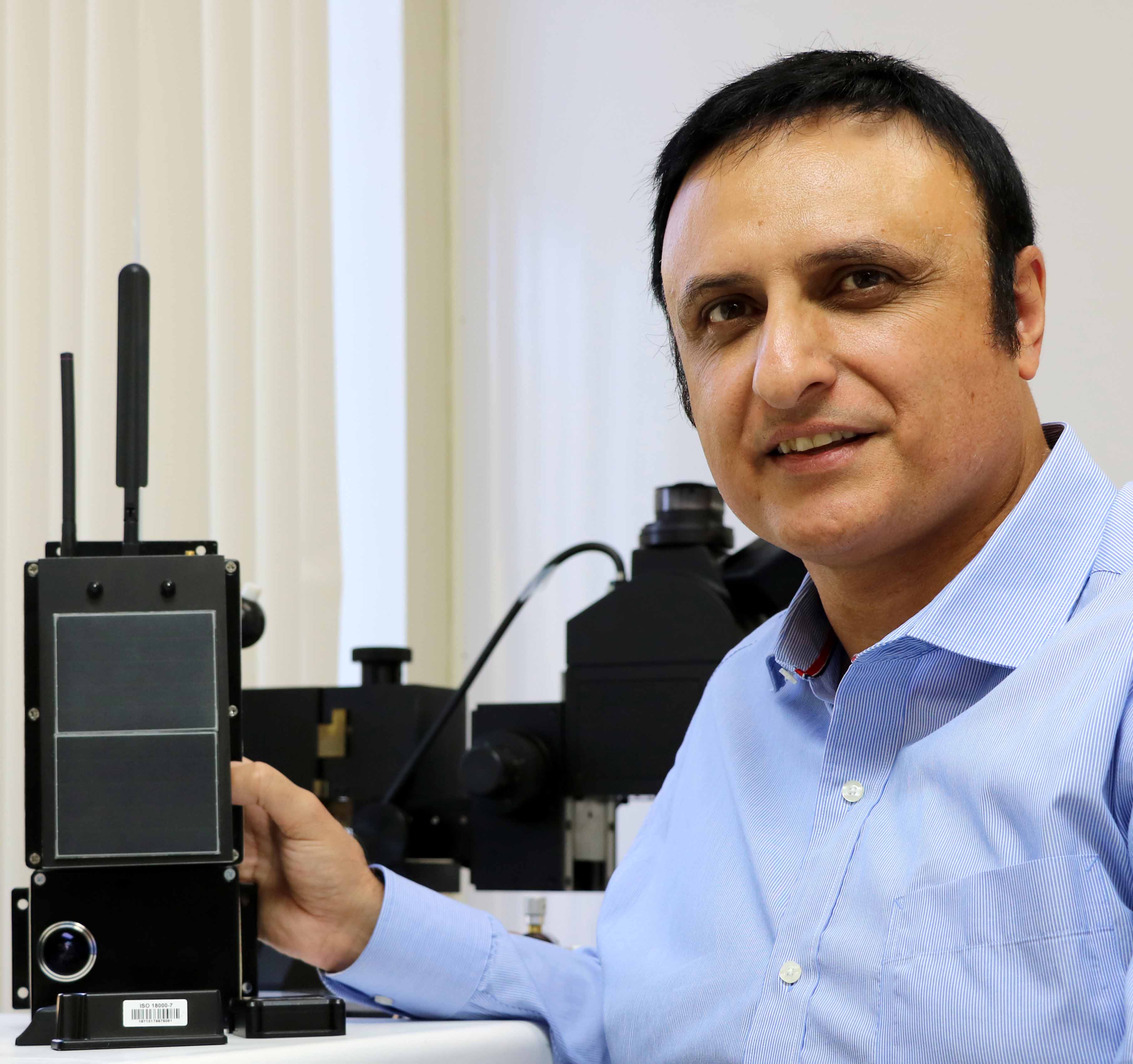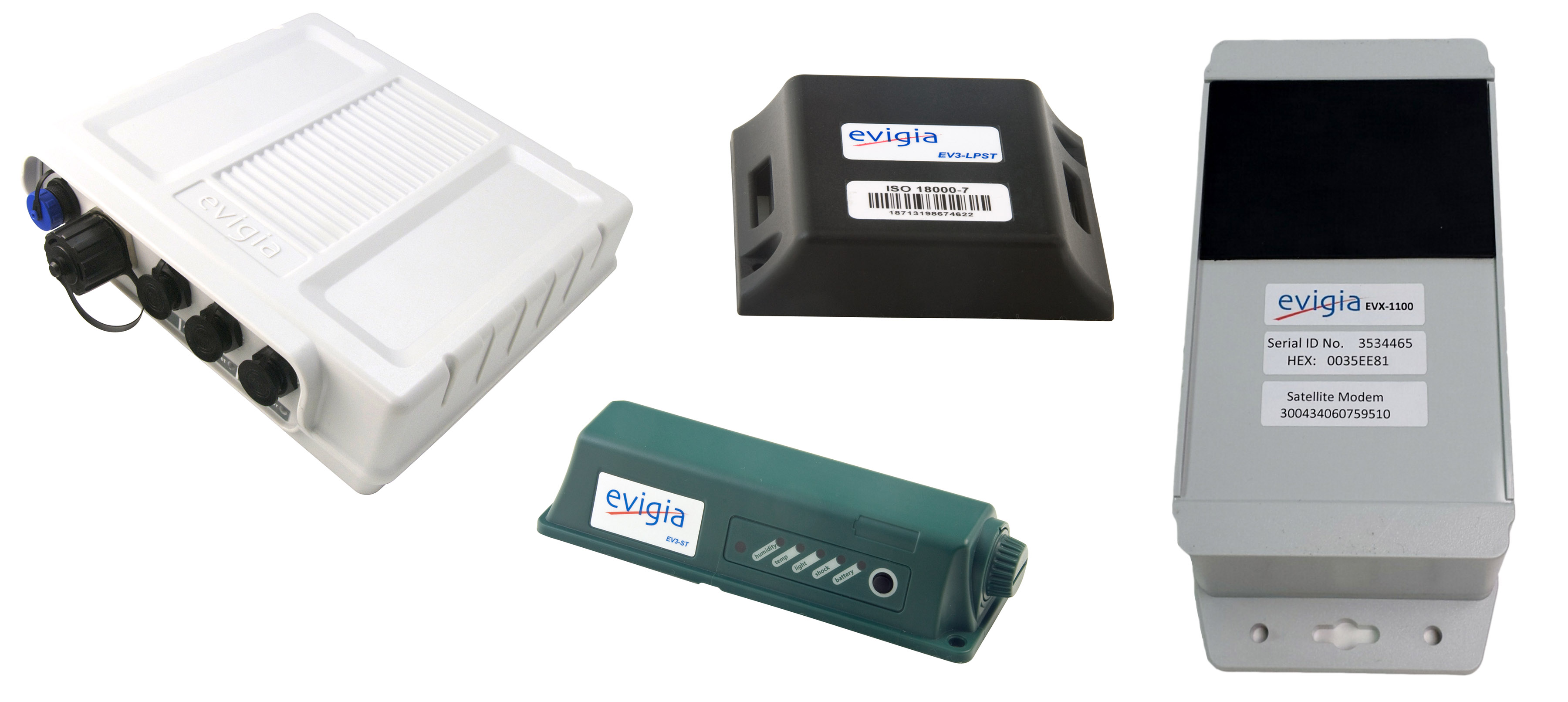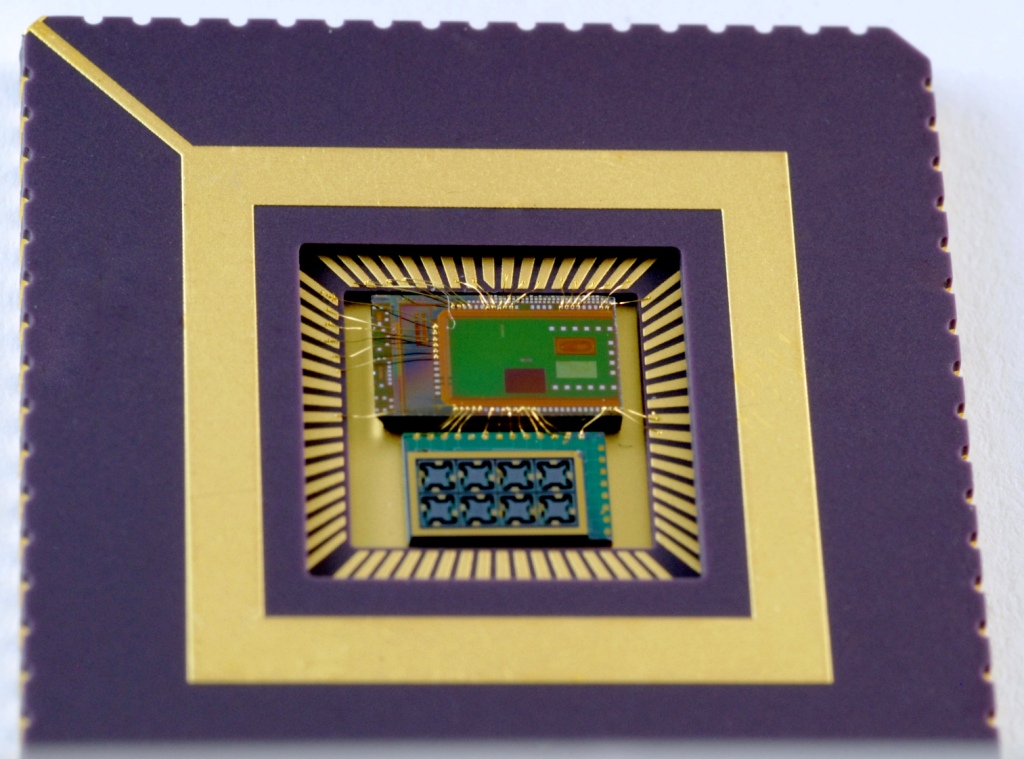Evigia founder Navid Yazdi creates essential sensor networks
Alumnus Navid Yazdi develops sensors that accomplish incredible tasks.

 Enlarge
Enlarge
There is a bit of magic inside all the devices that Navid Yazdi (PhD EE 1999) creates. This magic is what first interested him in electrical engineering, is what he explored during his PhD, and is what drives his work as Founder and CEO of Evigia Systems.
“I realized this at 16 years old,” Yazdi says on finding his lifelong interest. “It’s fascinating, you put these chips on a board and they do all these amazing things for you.”
While inconspicuous, perhaps on purpose, the variously sized black boxes marked with Evigia’s logo perform anything but mundane tasks. The sensor systems can help save lives, mitigate environmental disasters, and improve logistics and manufacturing, among a few of their uses as part of the Internet of Things (IoT).

 Enlarge
Enlarge
Using rugged, reliable, and low power sensors combined with an array of communications technology, including cellular, satellite, and mesh networks, Evigia’s networks can relay information from harsh environments for longer than a decade without maintenance – not even a change of batteries. This enables a wide range of uses, no matter how remote, hot, cold, or wet the location.
For example, to save lives, Evigia works with the government to deploy flood sensors, which feeds models to develop earlier and more accurate flood warnings for drivers and first responders.
To mitigate environmental disasters, Evigia and AECOM developed a system to coordinating cleanup of oil spills. The system can manage thousands of boats while interpreting weather and waves to help deploy booms, skimmers, and other resources where they would have the greatest effect.
To improve manufacturing, Evigia’s IoT system can help massive warehouses determine where products and materials are at any point in production, as well as collect data on equipment. Analyzing the data can help determine bottlenecks, quality issues, and safety concerns, and make sure products ship on time.

 Enlarge
Enlarge
Yazdi learned how to utilize a chip’s magic in such ways when he attended Michigan, where he worked on some of the first-ever wireless integrated microsystems under Professors Khalil Najafi and Ken Wise. This work eventually led to the establishment of the NSF Engineering Research Center for Wireless Integrated MicroSystems (WIMS) at U-M in 2000. Now named Wireless Integrated MicroSensing and Systems (WIMS2), the center has helped create 15 companies and over 85 patents.
“After Michigan, your chances are higher to succeed in what you want to do,” Yazdi says, reflecting on his work at U-M. “When you enter the workforce, you can pick up skills very quickly because of Michigan’s hands-on experience, facilities, and training.”
For those fortunate enough to still be students, Yazdi shares this advice: “Use every minute, every hour, every opportunity in the program to learn and gain experience. Everything is all there.”

 Enlarge
Enlarge
After graduating, Yazdi recognized the business opportunity of Evigia while working at Corning IntelliSense. “I had learned some skills that I could apply, it was a good market, and there was a lot of available talent. I could create a venture and make it successful,” he says.
Yazdi was correct. He founded Evigia in 2004, and after finding the right market position in sensor network systems, began selling products in 2009. Original customers were mainly in the defense and aerospace industry, where their sensors provided support for tracking and asset management, even of nuclear assets.
After the small company had to weather military spending uncertainties during budget sequestration in 2013, Evigia focused on diversifying clients and now works with a wide variety of industries. The company’s success has enabled Yazdi to expand under a new brand, EVX Micro, which offers custom development of sensors and systems.
While Yazdi’s tasks as CEO typically take him away from tinkering with electronics, which remains his passion, the role gives him the ability to apply and sell the magic of electronics in new and meaningful applications.
“Because of our history of working with larger players and understanding demanding applications, we offer not only the technology but also knowledge of the aspects that will affect products and performance,” Yazdi says. “We can make sure new clients succeed in applying this technology.”

 MENU
MENU 
